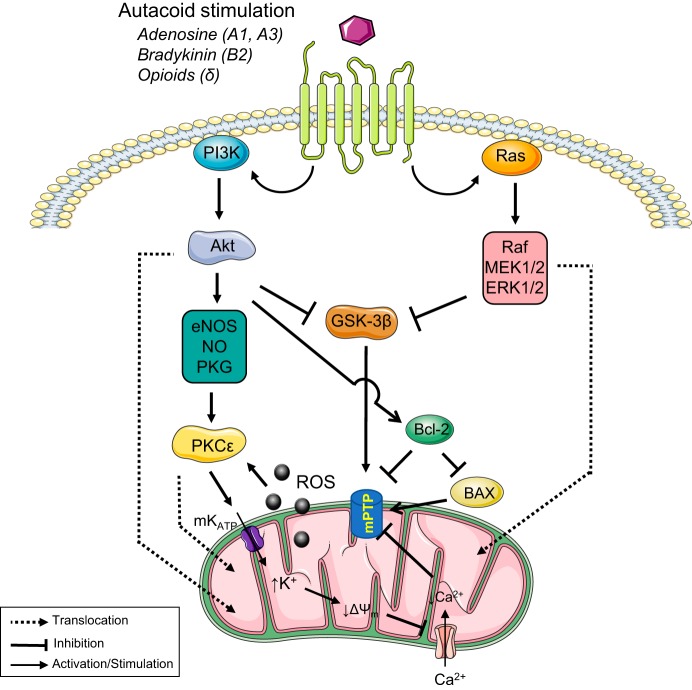Fig. 2.
Main signaling pathways involved in mitochondria-mediated cardioprotection by ischemic preconditioning (IPC). IPC is triggered by ligands (i.e., adenosine, bradykinin, and opioids, among others) that through receptor-mediated processes stimulate signaling pathways involved in cardioprotection. Prosurvival kinases involved in these pathways [phosphatidylinositol 3-kinase (PI3K)-Akt and Ras-Raf-MEK1/2-ERK1/2] are activated and translocated to the mitochondria to exert protective action. Both pathways lead to inhibition of GSK-3β, which blocks the mitochondrial permeability transition pores (mPTP). Also, the activation of the PI3K-Akt signaling mechanism, promote activation of PKCє through the endothelial nitric oxide synthase (eNOS)-nitric oxide (NO)-PKG pathway. Stimulation of mitoKATP channel leads to reduced mitochondrial potential and inhibition of mPTP opening. Reactive oxygen species (ROS) generation by stimulation of respiratory chain activity promotes the continuous stimulation of PKCε and cardioprotection.

